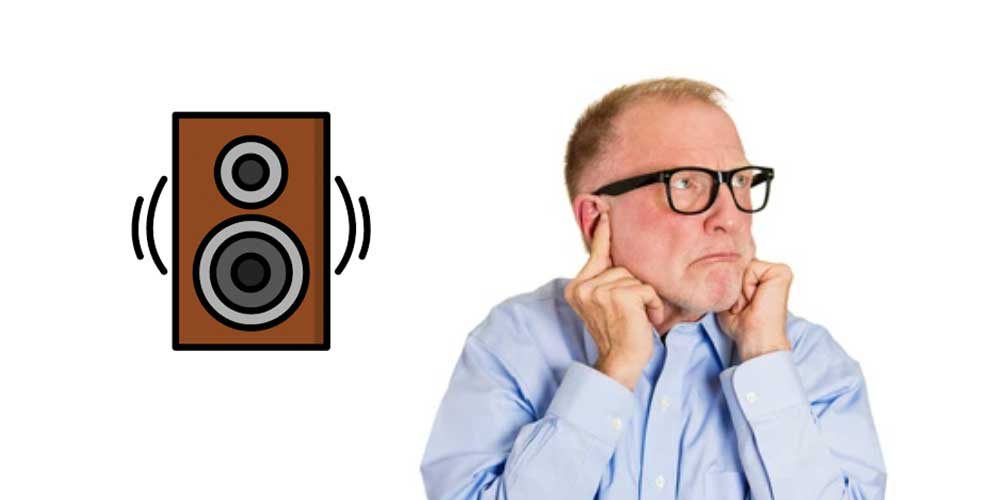How to Fix Speakers Popping (Easy Guide)
Listening to different types of music is full of fun when you are using external speakers connected to an audio device. It makes you enjoy your free time, making you feel happy, especially when playing your favorite song.
For you to perfectly fix these popping sounds produced by the speakers, you can follow the steps below;

Step 1: Turn Off the Connected Audio Device.
Turning off the audio source will make it easier for you to troubleshoot the problem. It will prevent you from being shocked when checking for the cable connection. In addition, it will avoid any form of short-circuiting when foxing the wire connection.
Therefore, this is an important step you cannot afford to jump in if you want to troubleshoot your audio popping problem safely.
Step 2: Check for Any Loose Connection between the Speaker and the Audio Source Device.
After turning off the audio source device, you can check the cable connections. The loose connection of the wires between the speaker and the audio devices contributes to the speaker popping by a more significant percentage.
For this reason, it is recommended that you check first and ensure the wires are correctly connected before moving to the next step.
Step 3:Turn Off or Move Away From All the Electronic Devices Close To the Speakers.
Removing the electronic devices from the popping speakers will help reduce the interference of the speaker audio. Electronic devices such as modems and cell phones constantly relay electromagnetic signals when turned on.
These signals can make the sound from the speakers start popping. In most cases, this happens when the devices are on a call or when messages are being sent or received.
For this reason, it is not advisable to keep your speakers close to an active modem with an internet connection.
Step 4: Move the Wire Connections Away From Electrical Cords.
In the speakers are close to any electrical code, you can move away from the speakers when fixing the problem. The electrical cords can also cause interferences with the sound being transported through the wires in the form of electric signals.
This happens due to the effects of magnetic fields that form around a cable with current flow. Therefore, when the wires are close to each other, the magnetic field lines produced cross each other, resulting in the interference of the signal being transmitted. If the problem is not solved, try the next step.
Step 5: Try Using the Speakers on another Sound Device.
Despite all the previous steps, if the problem is not solved, you can use another sound source device to test the speakers. This will let you know if the problem is coming from the speakers.
Furthermore, you can also use new wires to connect the speakers to the sound source more accurately. If the problem is from the speakers, you can take it for repair or do a replacement. If the problem persists, try the next step.
Step 6: Set the Sound Device to the Default Setting.
If the problem is with the sound device, you can reset the device to its default factory settings. This will change all the settings you may have made, which can also cause sound popping.
When the problem persists despite changing the wires and using another set of speakers, your sound device will automatically cause the problem. In this case, you will have to repair the device or replace it if possible.
What Causes the Speaker to Pop?
The interruption of audio signals mainly causes the popping of speakers. The audio signals are usually transmitted through the wires in the form of electrical signals by the alternating current.
When these audio signals reach the speaker, they will be converted from an audio signal to sound waves. Therefore, the speaker will be the transducer in converting the electrical energy to mechanical energy.
However, due to interruption in the transmission of the Alternating current signals, this energy conversion may be unsuccessful.
Some factors that can lead to the interruption of the audio signals include the presence of a loose able connection between the speakers and the audio device.
The interference is caused by nearby devices that relay or propagate electromagnetic signals, such as modems and cell phones. These interferences also cause an interruption in the sound signals, especially when they are active.
How Does This Interruption Occur?
The speakers are usually designed to have a linear motion corresponding to the audio signal applied. When the electrical signals carrying sound energy pass through the speaker’s driver, they will move outward and inwards, producing smooth and consistence sound waves.
This type of sound propagation is always in the form of a sine wave, whereby the audio signal is at the peak when the driver is moved far outward. On the other hand, the excellent signal is at the trough when the driver is pushed far inward by the voltage in the cycle.
When there is an interruption in the audio signal, the sound produced by the speakers will not be smooth. This is because the interrupted audio signal will result in inconsistent propagation of the sound waves.
How to Prevent Speakers from Popping?
When playing music, always move away from electronic devices such as cell phones and modems to prevent the relayed signals from interfering with your sound signals.
Ensure there is no loose wire connection between the speakers and the audio device
Put away any electrical cords from the wires used in the connected speakers to prevent electromagnetic interference.
Conclusion
When your speakers encounter sound issues, such as popping, which produces noisy sound, you need to know how to fix it. This will help you solve the problem, especially if it is not complex. This will also make you understand the causes of the popping of speakers and how to handle them effectively.